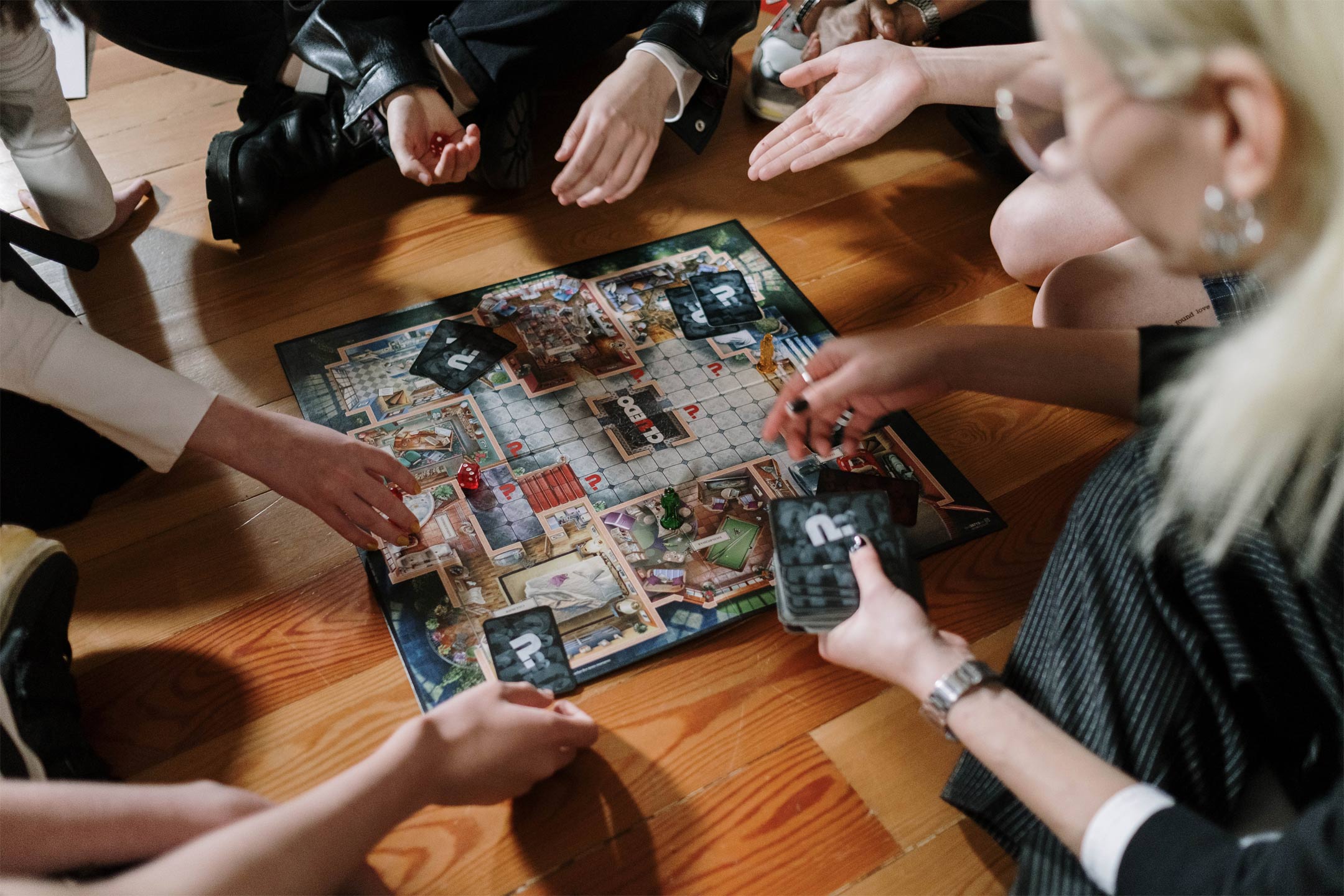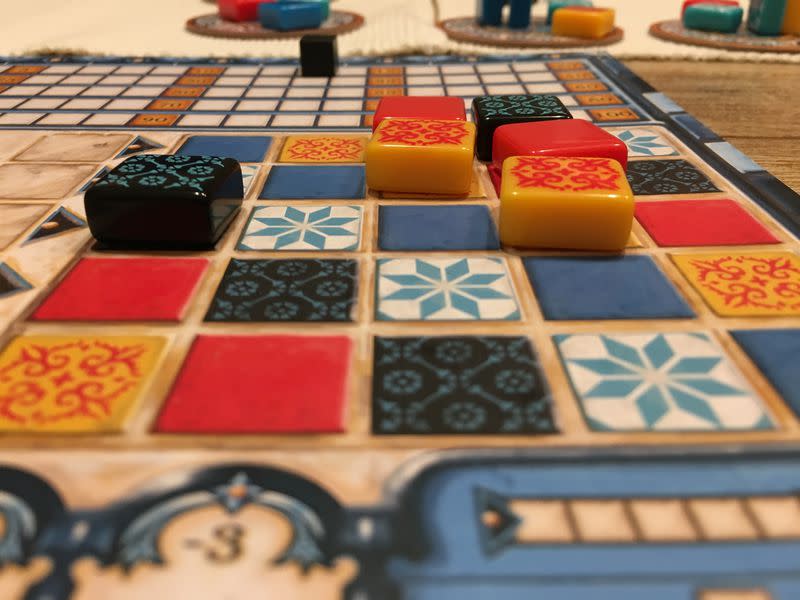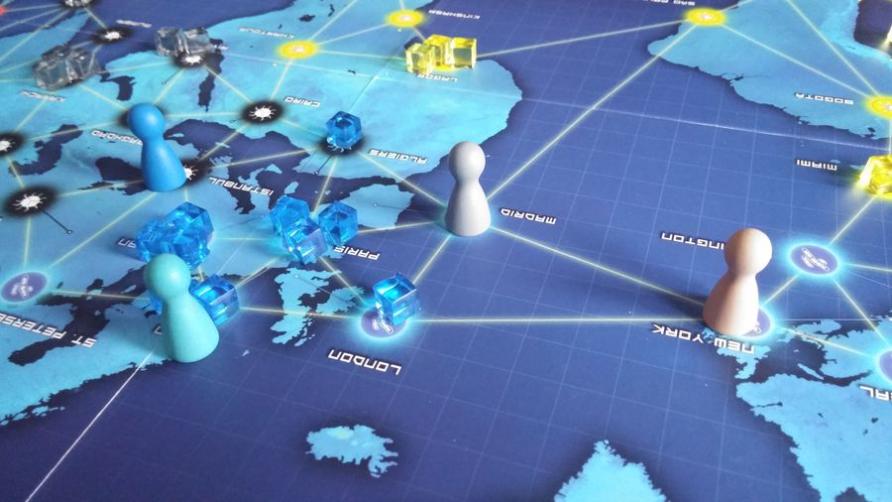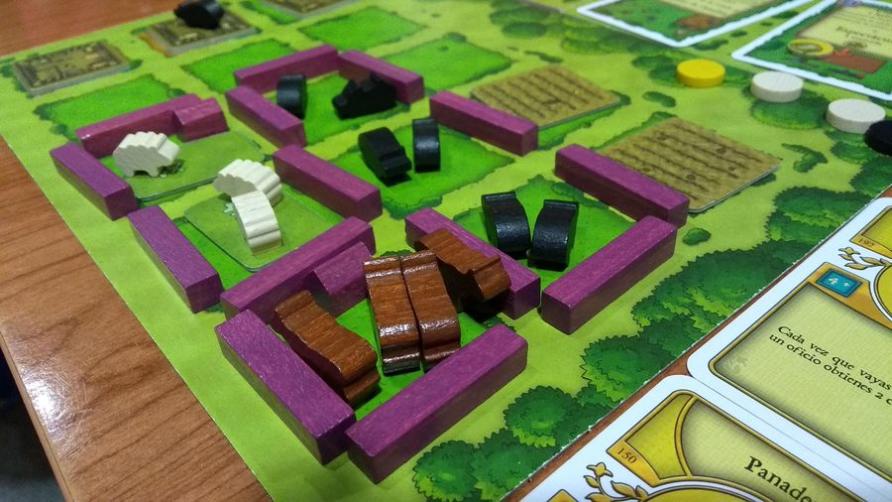
04 Oct Board gaming can open up a whole new social experience for families
So after we’ve been physically isolated with just our immediate household for company and nowhere to escape to let off steam, are board games really such a good idea?

Our research shows that there are four things that experienced board game players value about playing games:
- They like the materiality of the game – being able to touch pieces and to rearrange them
- They like variety – having a choice of games which are different every time they play
- They value the intellectual challenge of making decisions, forming and re-forming plans, exploring and experimenting with different strategies
- And they like the social experience of coming together with others around a table, with a shared focus.
Fortunately, boardgames don’t need to be about conflict – at least, not the kind that leads to tears.
Modern, so-called European-style boardgames focus on constructive behaviours, and the winner is usually the person who does something first, or best, rather than the person who eliminates everyone else from the game.
Interactions are usually voluntary – like trading and negotiation – or have other catch-ups built in.
For example, in Kingdomino, the player who selects the lowest-numbered (usually least valuable) tile in a round gets to pick first in the next round. In Bohnanza, players manage a queue of beans that they must plant in their small garden by trading away the varieties that they cannot use.
The Quacks of Quedlinburg sees players take on the role of snake-oil sellers, competing to (independently) make the best potions. And in Azul, players select from a known set of tiles that are randomly drawn at the start of the round.

Other boardgames are overtly cooperative, requiring players to work together to defeat the game itself.
It feels almost trite in a time of COVID-19 to mention Matt Leacock’s Pandemic, but it is an outstanding game in which each player’s role offers different skills and abilities that contribute to stopping the spread of disease across the globe.
Watch out, too, for The Crew: The Quest for Planet Nine, a co-operative trick-taking card game for three to five which is being released in Australia later this year.
Taking a different approach, some newer games tackle cooperative problem-solving through the metaphor of an Escape Room – players work together to solve a series of problems to ultimately “escape” the game, building important teamwork skills.
These games lack replayability – you can only solve the same mystery once – and take different approaches to the physical act of solving a problem.
In some of these games, players destroy the components in order to solve the game by cutting up the cards and rule book and maybe even destroying the box. Others use a custom app so that the games can be passed on to friends and family members.
For those isolating alone, or who need some down time, many modern games offer options for solo play.
Children, in particular, can enjoy playing with a game as much as they enjoy playing the game itself. Young children’s games like Hisss and Catch the Match, Spot It/Dobble are well suited to solo play, as are “dexterity” games like Rhino Hero and Make ‘n’ Break.
More complex games for adults, such as Agricola, offer rules for solo play where the competitive element is not in what other players do but in the player’s own achievement from game to game.

Many multiplayer games work equally well for two players, but sometimes it’s good to focus on something specifically designed for two.
Be conscious of the expected playing time – head-to-head matches of Terraforming Mars (one of my favourites, but definitely not for novices) can last more than five hours. Shorter but well-received two-player games like Patchwork and Lost Cities should only require 30 to 45 minutes.
Lastly, of course, there is the option to play online.
We’ve previously found that this was a popular option for people who were isolated from fellow players – for example, for parents of young children who were unable to go out for game night.
Apps and websites are reporting huge increases in traffic as people seek to replicate their game night experience with an online game board, while others are using video chat tools like Zoom and Skype. In the absence of a knowledgeable friend, online game explainer videos are a valuable tool that can help in learning the rules.
Whether we play online or offline, by ourselves or with others, playing games is always a social experience. Although the way we experience that socialising is changing in response to our living conditions, the games remain the same.
Words by Dr Melissa Rogerson
This article was first published on Pursuit.

